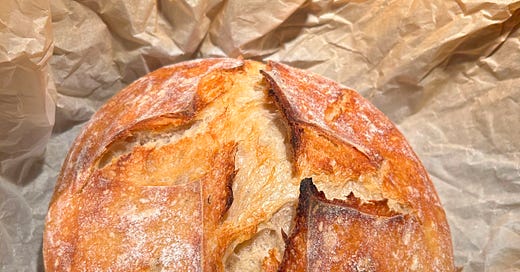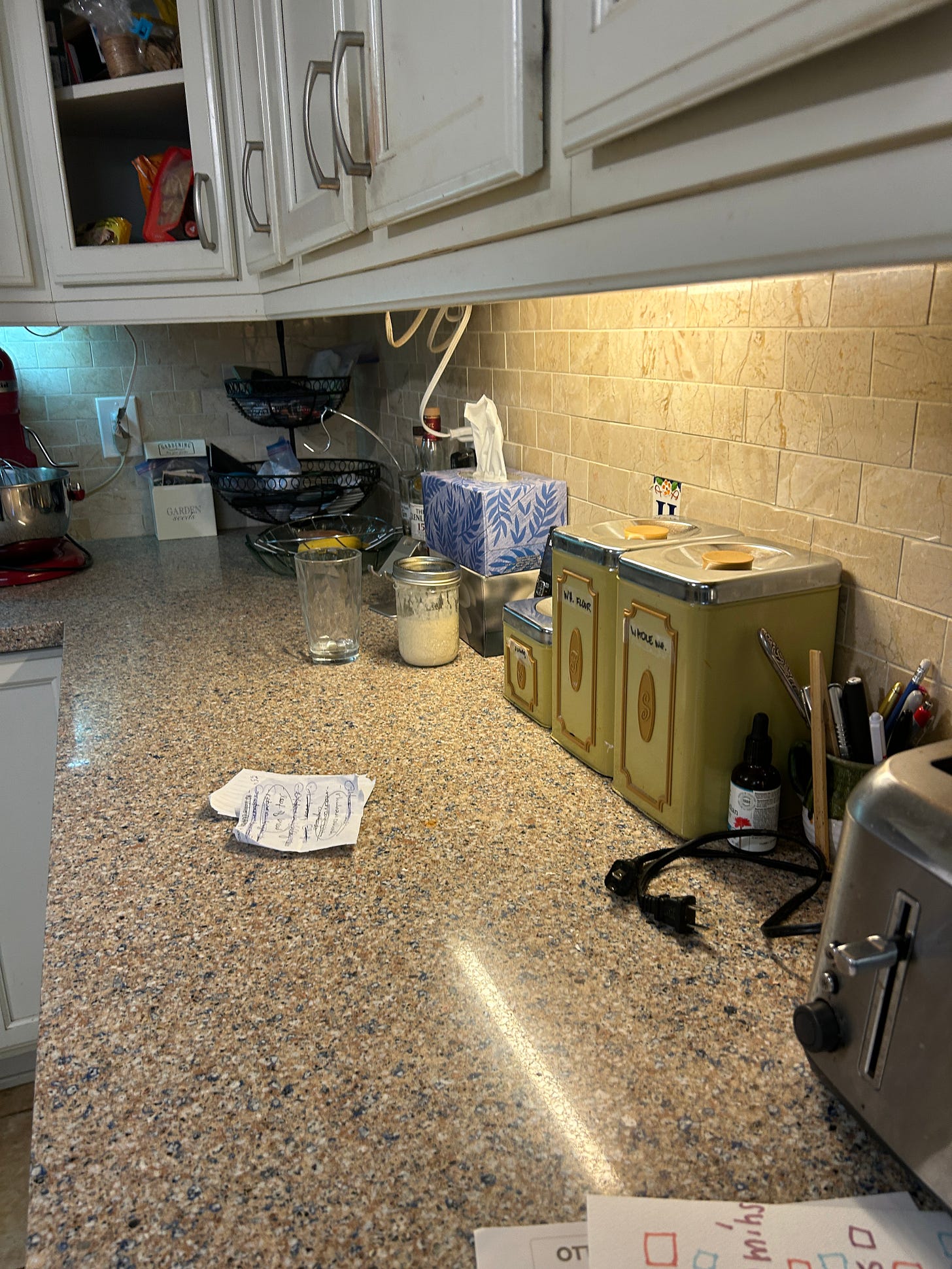Climate Action in the Kitchen
A prayer and a couple of plant-based recipes to ground and empower you. May 22 is International Biodiversity Day. Come join me online!
International Biodiversity Day is on Thursday, May 22
The Biodiversity and Creation Justice Working Group, a section of the World Council of Churches Commission on Climate Justice and Sustainable Development, is hosting a FREE webinar to highlight the crisis of biodiversity loss, its relationship to the climate crisis, and the importance of communities of faith taking action. I will be offering a theological reflection during the webinar. PLEASE JOIN US!
It is on Thursday, May 22, at 13:00 CET/7:00 EST and will be 90 minutes long.
For more information and to register:
Biodiversity Crisis & Faith Action WEBINAR
I hope to see you online!
We are in a climate and ecological crisis, and it’s all hands on deck... Subscribe to join a community of people of faith who care about climate action and find hope and encouragement at the same time!
Climate Action in the Kitchen: Grounding and Empowering
This week, I’ve been thinking about what sustains me in this work of inspiring people of faith to take climate action. I read horrific and wrenching details about the climate crisis every day: what it looks like now in various parts of the world, and what it’s due to look like in the future. How do I keep myself going, without exploding in rage at the world, or imploding in climate anxiety?
For me, the answer is simple.
I cook.
I love to cook; I find joy in my kitchen, as the people who are close to me in real life know. A few months ago, I learned how to make sourdough bread, and that has changed my life. I’ve gone from a person who couldn’t eat any wheat to one who can eat sourdough bread! I’m now baking sourdough in all sorts of forms every week: bread, rolls, crackers, muffins, and more. I’m grateful to Just Food for a sourdough making workshop they hosted for teaching me! Just Food is a non-profit organization near me that emphasizes teaching people the skills for gardening and making food as a means to empower individuals and communities, and increase food security.
What does making food have to do with climate action?
It is well known that industrial agriculture directly contributes to the climate crisis. Factory farming, the clear-cutting of forests to raise animals for meat, the transportation of meat from far distances to our grocery stores, all this and more make the consumption of animal products produced through industrial agriculture a direct cause of the climate crisis. It’s also incredibly inefficient:
Over a quarter of the world’s entire land area is used to graze or grow food for farm animals – food that could have been eaten by people in the first place. Just 1kg of chicken meat takes 3.2kg of crops to produce.1
Thus, I also cook and serve a largely plant-based diet to my family. The meat we do eat is primarily from a local business that sources from smaller family farms. Even then, meat is an occasional addition to our diet, not the mainstay of our nutrition. (We buy our meat from Ottawa Valley Meats.)
Choosing to eat a plant-based diet is an important individual action that you can take as an act of discipleship. Removing meat from our diets, especially beef and dairy, is the single most effective action we can take in our personal lives in response to the climate crisis. While individual actions alone are not enough to mitigate global warming, responding to God’s call for climate action in this way can be effective in several key ways:
It empowers us because we are doing something concrete and effective about the climate crisis;
It grounds us in our faith and practice, right in our own homes;
It helps us practice what it will be like in the future, when meat becomes scarce and too expensive for most people to afford; and
It strengthens our character as people of faith living a discipleship of climate action.
To that end, I want to offer you some encouragement and support in your kitchen, too. Here are two plant-based recipes that I have developed over time, adapting them to our tastes and what is available. I offer them to you here, with the following prayer:
Dear God,
Please bless me and my kitchen;
bless my hands and heart;
bless the ingredients before me.
Bless the farmers who grew these foods
and brought them to my place;
bless the soil and the air,
the water and the creatures
who nourished and nurtured these foods
from seed to harvest.
Empower me O God,
as I make healthy and delicious food
for me and my own;
may I be ever mindful of those who struggle to have enough to eat,
and may this food be transformed in my body
into empowerment and action for the sake of the
whole Earth community. AMEN.
Rev. Jessica’s Tamari Tofu
Serves: 6-8
Stir Fry:
2 - 14 oz blocks of extra-firm tofu, cut into ½” cubes
2 Tbs olive or avocado oil
½ chopped green onions
3 cups broccolini (pictured) or broccoli, cut into bite-size pieces
1 red, orange or yellow sweet pepper, chopped
Stir Fry Sauce:
½ cup tamari or low-salt soy sauce
¼ cup apple cider vinegar
¼ cup water
3 large cloves of garlic, minced
2 Tbs fresh grated ginger
1 Tbs sesame oil
2 Tbs maple syrup
1 Tbs cornstarch or arrowroot powder
To serve:
Cooked rice or quinoa
Hot sauce (optional)
Sesame seeds (optional)
Instructions:
Need to find encouragement and hope in this time of climate and ecological crisis? Want to support this eco-ministry that is international and ecumenical and have access to the full breadth of my work? With a paid subscription you’ll get more of the encouragement you need, find hope in this difficult time, and make this ministry possible!
Keep reading with a 7-day free trial
Subscribe to Faith. Climate Crisis. Action. to keep reading this post and get 7 days of free access to the full post archives.













